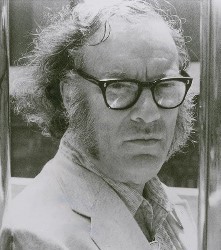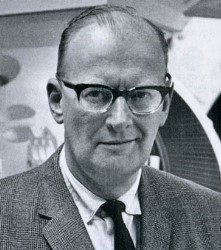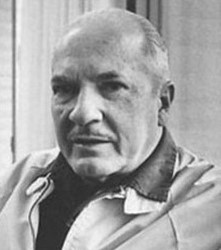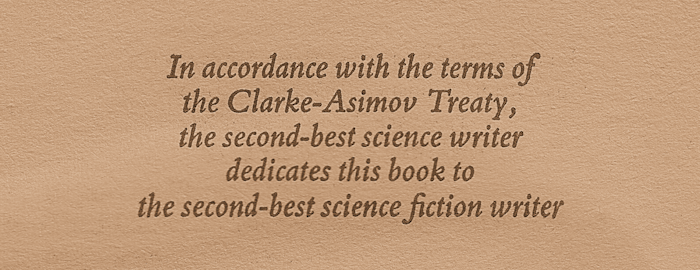Links to Bibliographies
The Big Three
--- Isaac Asimov
--- Arthur C. Clarke
--- Robert A. Heinlein
Science Fiction and Fantasy Series
SF Universes and Fantasy Worlds
|
|
|
|
|||
 |
 |
 |
Isaac Asimov, Arthur C. Clarke and Robert Heinlein are informally known as the "Big Three" - the best known members of the group of authors who brought science fiction into a Golden Age in the middle years of the twentieth century.
Clarke and Heinlein began writing to each other after Clarke's The Exploration of Space was published in 1951, and first met in person the following year. They remained on cordial terms for many years, including visits in the United States and Sri Lanka. In 1984, Clarke testified before Congress against the Strategic Defense Initiative (SDI). Later, at the home of Larry Niven in California, Heinlein attacked Clarke's views on United States foreign and space policy (especially the SDI). Although the two were later reconciled, they remained distant until Heinlein's death in 1988.
Asimov and Clarke first met in New York City in 1953, and they traded friendly insults and jibes for decades. The feelings of friendship and respect between the two were demonstrated by the so-called "Clarke-Asimov Treaty of Park Avenue", put together as they shared a cab ride in New York. This stated that Asimov was required to insist that Clarke was the best science fiction writer in the world (reserving second-best for himself), while conversely, Clarke was to claim that Asimov was the best science writer in the world (similarly reserving second-best for himself). Thus the dedication in Clarke's book Report on Planet Three and Other Speculations (1972) reads: "In accordance with the terms of the Clarke-Asimov treaty, the second-best science writer dedicates this book to the second-best science-fiction writer."
Heinlein and Asimov met after beginning to publish stories in Astounding magazine in 1939 and subsequently worked together at the Naval Air Experimental Station in Philadelphia during WWII. Asimov later commented that it was not an easy friendship - he felt that if they did not agreed on an issue then Heinlein would try to badger him to change his view and become hostile if he did not succeed.
 The dedication in Arthur C. Clarke's essay collection, Report on Planet Three and Other Speculations |



